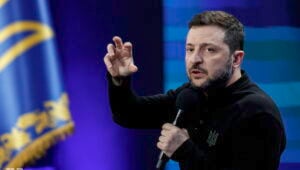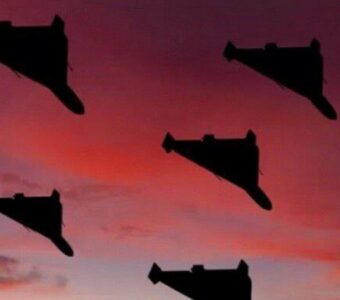Belarus leader Lukashenko's regime sees no gains in joining war against Ukraine – ISW

According to experts from the Institute for the Study of War (ISW), the recent concentration of Belarusian troops near the Ukrainian border appears to be a tactic aimed at diverting and weakening Ukrainian forces across a larger front. Still, the invasion itself is not beneficial to Alexander Lukashenko's regime.
The Institute for the Study of War (ISW) reported that.
Ukraine has given a warning to Belarus about the recent increase of Belarusian forces near the Ukrainian border in the Gomel region.
The Ukrainian Ministry of Foreign Affairs has urged Belarus to remove their troops from the border and cautioned that any breach of the Ukrainian border would result in Ukraine taking appropriate action by international law.
In addition, the spokesman of the State Border Service of Ukraine, Andrii Demchenko, said on August 26 that Ukrainian troops are retaliating by strengthening the border section with Belarus.
"The current buildup of Belarusian troops along the Ukrainian border is likely meant to divert and spread out Ukrainian forces across a larger front, as the Institute for the Study of War estimates that Belarusian forces are still not likely to invade Ukraine due to the limitations faced by self-proclaimed Belarusian president Alexander Lukashenko," the report said
ISW specialists note:
"A Belarusian invasion of Ukraine, or even Belarus' military involvement in the war, would degrade Belarusian President Alexander Lukashenko's ability to defend his regime (and be very unpopular domestically), and ISW has previously assessed that Lukashenko is extremely unlikely to risk combat with Ukraine that could weaken his regime or drastically increase Belarusian domestic discontent."
Experts say Belarus is expected to hold its presidential election in February 2025. Lukashenko likely wants to retain authority over public opinion and maintain influence over his military to suppress any potential protests related to the election, as he did in late 2020.
ISW has already observed Belarus deploying personnel to the Ukrainian border in late 2022-early 2023, similar to current deployments, and assessed that these efforts primarily stretched Ukrainian forces and disrupted their operations, thereby supporting Russian operations.
Belarus may again resort to such actions to lock down Ukraine's limited forces near Ukraine's border with Belarus in support of Russia's campaign to stretch Ukrainian troops.

Лукашенко на тлі наступу у Курській області закликав всіх "сісти за стіл переговорів", щоб закінчити війну в Україні
ISW key findings as of August 26:
- Russia conducted one of the largest combined series of drone and missile strikes against Ukrainian critical infrastructure to date on August 26.
- Ukraine issued a warning to Belarus amid the recent buildup of Belarusian forces at the Ukrainian border in Belarus' Gomel region.
- The current Belarusian build-up along the Ukrainian border is likely intended to divert and stretch Ukrainian forces along a wider frontline. ISW continues to assess that the Belarusian troops remain unlikely to invade Ukraine due to the constraints Belarusian President Alexander Lukashenko faced.
- Ukrainian forces reportedly attempted to strike Engels Air Base in the Saratov region and an oil refinery in the Yaroslavl region with drones on the morning of August 26.
- Ukrainian forces continued offensive operations within their salient in the Kursk region on August 26, but neither Russian nor Ukrainian forces made any significant confirmed or claimed advances.
- The Kremlin may be leveraging the leadership of the prominent Kremlin-linked Rybar Telegram channel to set cultivate increased Russian influence in Iraq.
- Russian Presidential Administration Deputy Head Sergei Kiriyenko was reportedly in charge of a Kremlin think tank that tried and failed to establish rhetorical justifications for Russia's full-scale invasion of Ukraine after the fact, underscoring the Kremlin's rhetorical failures in the first months of the war and Russian President Vladimir Putin's continued prioritization of loyalty over competency in officials.
- Russian forces recently advanced northeast of Kharkiv City, north of Chasiv Yar, southeast of Pokrovsk, and west of Donetsk City.
- The Russian Ministry of Defense (MoD) continues to recruit foreigners to fight with the Russian military in Ukraine.



















































